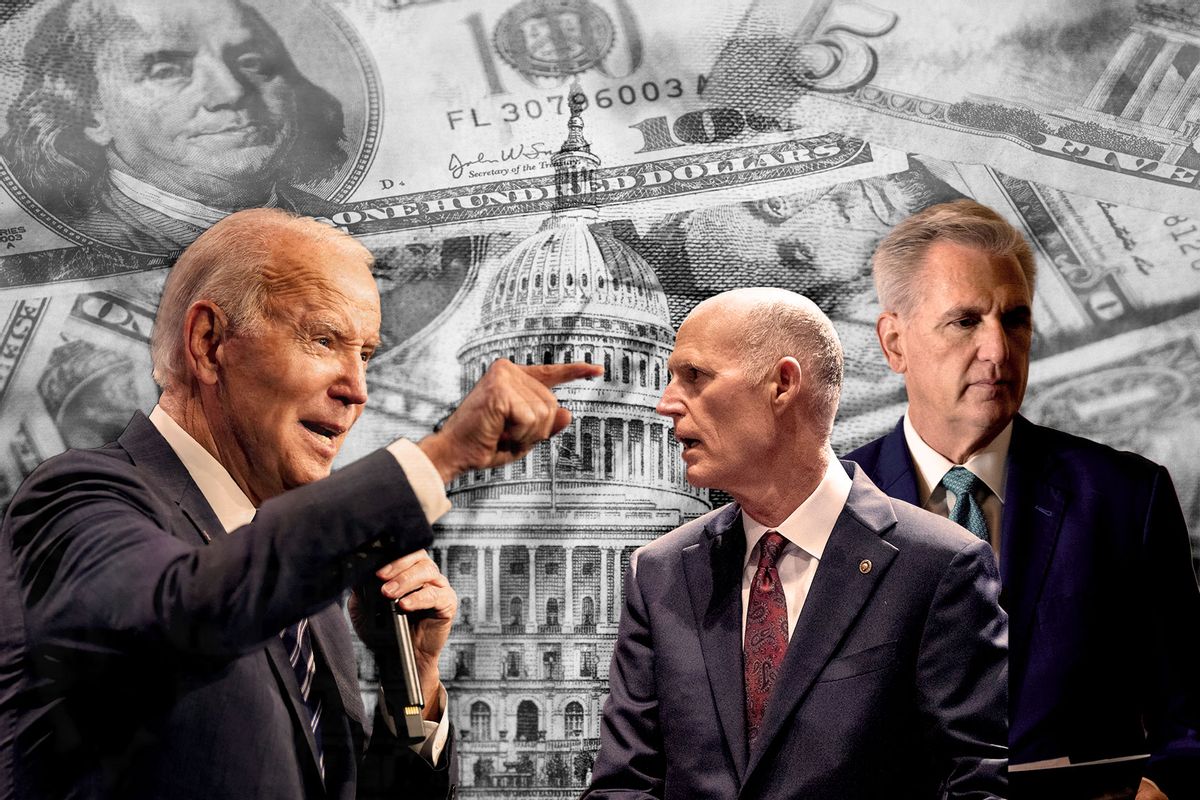Discussing the meaning of the taboo F-word in relation to Donald Trump's past behavior and future plans should he get back into the White House, former U.S. Attorney Joyce Vance wanted to know: "Can we call it fascism yet?"
As a simple and working definition of fascism, and one way to call out fascist politicians and political parties for what they are, I recommend using the Britannica dictionary: "a way of organizing a society in which a government ruled by a dictator controls the lives of the people and in which people are not allowed to disagree with the government."
Think about Gov. Ron DeSantis of the Republican-controlled state of Florida. The "anti-woke" governor epitomizes a legalistic fascist without the benefits of the First Amendment.
As far back as December 2015 people were asking whether Donald Trump was a fascist. At the time, eight experts weighed in and Vox determined: "Call him a kleptocrat, an oligarch, a xenophobe, a racist, even an authoritarian. But he doesn't quite fit the definition of a fascist."
At the time, and even after Trump took the reins of power in 2017 and held it through Jan. 20, 2021, Trump and his followers may have been anti-immigrant, anti-Black, and chauvinistic. Back then and now, Trump and company may also have been refusing to denounce the violence of the MAGA extremists or domestic weapons of mass terrorism. However, the anti-fascist labeling folks of the media were giving Trump a pass as a fascist because he has never been in charge of or led a fascist government.
Not yet, at least. But only if the government or people can stop Trump because the former president and leading GOP candidate for the Republican nomination in 2024 has been doing everything in his power to pull off his dictatorship of the "alt-right" body politics. At this point in time, I am relying most heavily on criminal prosecutors Alvin Bragg, Letitia James, Jack Smith, and Fani Willis rather than the American electoral system to get the job done.
For the past eight years, Trump has used fascist political and legal tactics to bring about an anti-democratic government, or to "deconstruct the state apparatus" in the words of Steven Bannon. This entails breaking the democratic rules or systems of law and order in order to establish a hyperpartisan tyranny of a politically controlled minority. The majority of Republican elected officials, so far, and the Trumpian Republican Party as a whole are all in with anti-democratic authoritarianism, if not, fascism per se as elected representatives have been busy proposing and passing as fast as they can "fascistic" legislation in every red state across America.
"I think that the reluctance of the body politic and mass media to use the f word goes well beyond semantics. It is about the American psyche."
Nothing exemplifies this fascism more than their Trumpian attacks on the IRS, FBI, DOJ, prosecutors, judges, and anyone else trying to enforce the rule of law against him or his loyal followers. Not to mention the Trumpian Republican efforts to suppress the vote and to overturn the rules of democratic elections statewide for the purposes of nullifying the will of the people.
Some contend that this failure to call a fascist a fascist has to do with your definition of fascism. I think that the reluctance of the body politic and mass media to use the f word goes well beyond semantics. It is about the American psyche and our real or imagined identities of what Americans truly are, and the 4th estate's ideologies about delivering "balanced" political news coverage — even when there is no symmetry whatsoever between the two adversarial sides.
Want a daily wrap-up of all the news and commentary Salon has to offer? Subscribe to our morning newsletter, Crash Course.
For example, the negotiated debt-ceiling bill that staved off a catastrophic default is being celebrated as a bipartisan deal without: (1) acknowledging that the bill should never have had to be negotiated (or "extorted") in the first place; (2) examining the contents and the negative consequences for the global environment, taxpaying non-billionaires, and student debt just to mention three obvious examples; and (3) underscoring that the deal itself regardless of the content establishes a terrible precedent for the future where contradictory or nonproductive debt ceiling deals like this one will be passed again and again.
The news media ignores the fact that neither the Democrats nor the Republicans could afford politically to be viewed or held accountable for a calamitous default. They had no choice but to pass the "bad" deal for the American people. What seems to have mattered to the media was primarily that the Senate approval vote was 63 to 36 and that more than 300 House of Representatives voted affirmatively for the bill. Hence, the existing experiment in American democracy and bipartisanism is still working, blah, blah, blah.
Unfortunately, the mass media has been preoccupied with the newsmaking bipartisan-negotiated "let's make a deal" thing. As the rhetoric goes, nobody gets everything they want, blah, blah, blah, emphasizing that the partisan extremes at both ends of the imaginary political spectrum were not happy with the deal — as if that makes it some type of a good deal. This type of rhetoric of reification is always defended by the bromide that this is how "tyrannies of a minority" rather than "tyrannies of a majority" are supposed to work.
Once again, it is always about "form" without regard to "content." Never mind that the agendas of the "left extremists" or the Progressive caucuses in Congress are about expanding democracy, individual rights, social equity, and political inclusion and the "right extremists" or the Freedom caucuses in Congress are about contracting democracy, individual rights, equity, and political inclusion.
The fundamental differences can be characterized as the Democrats as a whole, moderate or progressive, are pro-democratic and the Republicans as a whole, moderate or reactionary, are antidemocratic or fascist as a whole.



Shares